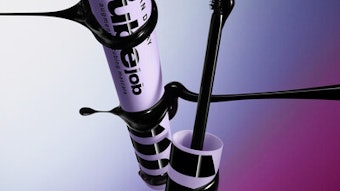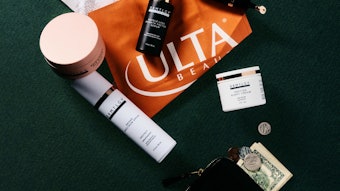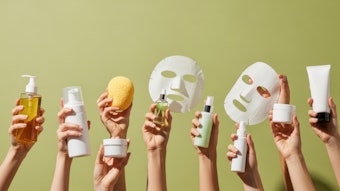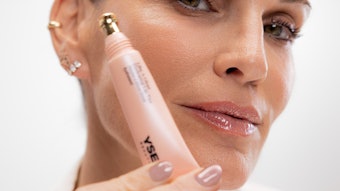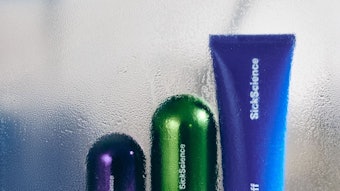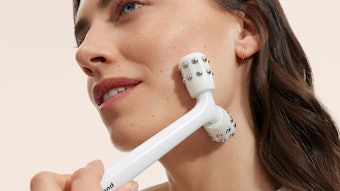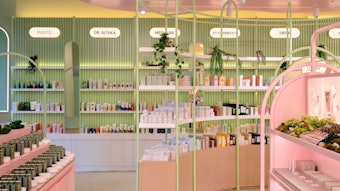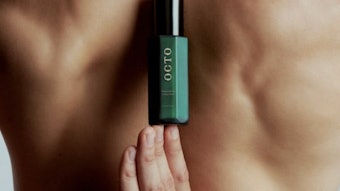The organic food movement is well established, with major retailers devoting whole sections in-store to organically sourced produce in response to consumer demand. Yet within the cosmetics and toiletries industry, organic and natural still means niche, with mainly unknown brands sold in alternative outlets such as health food stores. If the growth of organic food is anything to go by, then mainstream beauty brands could be in for a shock as consumers demand natural and organic alternatives to the brands they usually use.
Regulatory Minefield
The area is a minefield, with no current legislation to stop companies from using words such as organic or natural on their products. Fortunately, there are a number of organizations working toward a common goal of providing industry-wide acceptance of certified schemes for the inclusion of organic ingredients in cosmetics. In Europe, these include the organizations Ecocert, based in France; BDIH* {Bundesverband deutscher Industrie- und Handelsunternehmen} in Germany; AIAB* {Associazione Italiana per l¹Agricoltura Biologica} in Italy; and The Soil Association* in the United Kindgom. According to The Soil Association, the number of toiletry companies looking for accreditation to its scheme is on the increase. So far, only a few companies have passed The Soil Association’s stringent criteria, and Spiezia Organics is the only UK brand of skin and body care products to be certified 100% organic. The products are handmade—using herbs, flowers and oils—and formulated without the use of water. Many brands fail The Soil Assocation’s testing criteria because their water-based products contain parabens. Finding alternatives to parabens that meet safety levels and shelf life expectations is proving a major challenge.
According to Jonathan Ford, creative director of UK consultancy Pearlfisher*, people are becoming more discerning about what constitutes a natural product, and are rejecting products that do not have the right credentials. He maintains that consumers are seeking genuinely pure natural products—such as those from Dr. Hauschka, Ren and Aveda—that behave in the right way from start to finish. The niche brands that claim holistic purity connect with the individual on a personal level and use honest communication to show real integrity and meaning, he maintains.
Launches Up
The number of launches based on natural/organic ingredients is increasing, according to Mintel’s Global New Products Database*. In the United States, this includes launches such as Tom’s of Maine aluminium-free Natural Long-Lasting Deo Stick and Lavera Body Spa soap and body products that are grown organically and include natural ingredients with vegan essences and fruit extracts. Another recent U.S. launch is Morningstar Minerals Derma Boost Rejuvenating Spray Mist. It is a natural, organic spray-on conditioner and restorer for skin and hair. Formulated with fulvic acid, the product is said to supply the skin with essential nutrients and reduce the effects of aging and weather.
Other organic niche skin care brands that are catching the eye of beauty journalists include Iceland’s first range of natural facial skin care products containing herbs grown on a remote organic farm in northwest Iceland. The farm officially has been certified as organic by the Reykjavik Ecological Institute, earning the herbs in the Taer range the Organic Product of Iceland mark. Just 70 tons of herbs are produced each year to ensure their quality and potency. Taer Icelandic products recently have gone on sale in Fred Segal stores.
Celebrity interest and tie-ins are helping to gain exposure for organic beauty ranges that are too niche to invest in advertising. Jo Wood Organics is a range of bath and body care products endorsed by Rolling Stones guitarist Ronnie Wood’s wife Jo, who was unable to find skin care products that were luxurious and completely chemical-free and decided to make them herself. The products in the range capture the spirit of exotic places she has visited while on the road with the band, including the Caribbean, Morocco, India and the Far East. None of the products contain water, but are formulated with ultra-filtered orange juice to the point where it becomes known as vegetal water. The liquid has similar properties to water but with additional health-giving benefits. Wood eschews the use of petroleum derivatives, mineral oils, sodium laureth sulphates, parabens, phthalates and other chemically derived active ingredients.
Louise Galvin is well-known on the celebrity hairdresser circuit as the daughter of top London stylist Daniel Galvin, and is a leading hair colorist in her own right. She has launched her own range of natural and ethical hair and body care products called Louise Galvin Sacred Locks. The product formulations rely entirely on natural or naturally derived ingredients such as grapefruit extract that take the place of any artificial preservatives. The products also claim to be CarbonNeutral, as greenhouse gases resulting from their manufacture, marketing and distribution have been neutralized by supporting a renewable energy project in rural India.
The Whole Story
Today’s switched-on consumers, it seems, do not buy into just the product or packaging, but the whole story—including the ingredients, people, process, provenance and, above all, the emotional factor.
Pearlfisher’s Ford concludes that businesses are becoming more aware of the move toward “good” or “better” materials, such as biodegradables and post-recycled plastics, as well as fair trade business principles or the adoption of a Carbon Neutral business policy. But “goodness” only can become mainstream and a viable business proposition if it is beneficial for the environment, the manufacturer and the consumer. For many brands, there still is a long way to go.
